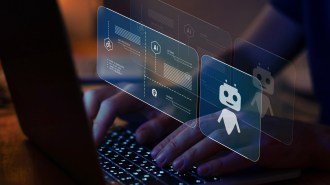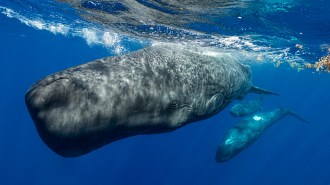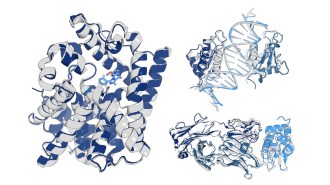
Artificial Intelligence
A quantum trick helps trim bloated AI models
Machine learning techniques that make use of tensor networks could manipulate data more efficiently and help open the black box of AI models.
Every print subscription comes with full digital access

Machine learning techniques that make use of tensor networks could manipulate data more efficiently and help open the black box of AI models.
We summarize the week's scientific breakthroughs every Thursday.

Chatbots that dole out fact-laden arguments can sway voters. Those facts don’t have to be true.
People who use search engines develop deeper knowledge and are more invested in what they learn than those relying on AI chatbots, a study reports.

Some “clicks” made by sperm whales may actually be “clacks,” but marine biologists debate what, if anything, that means.

From blaming the victim to replying "I have no interest in your life" to suicidal thoughts, AI chatbots can respond unethically when used for therapy.
An AI tool trained on chemical signatures from corpse-eating insects may help determine time and place of death for victims of violent crimes.

The open-source AI model improves transparency in predicting how proteins interact with other molecules, which could speed up drug discovery.

AI promises to speed up scientific analysis and writing. However, AI agents struggled with accuracy and judgment.

Age and gender bias in online images feeds into AI tools, revealing stereotypes shaping digital systems and hiring algorithms, researchers report.
AI edits to the blueprints for known toxins can evade detection. Researchers are improving filters to catch these rare biosecurity threats.
Subscribers, enter your e-mail address for full access to the Science News archives and digital editions.
Not a subscriber?
Become one now.